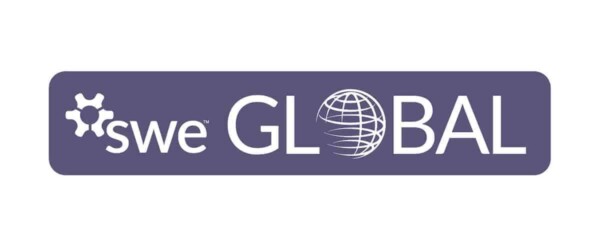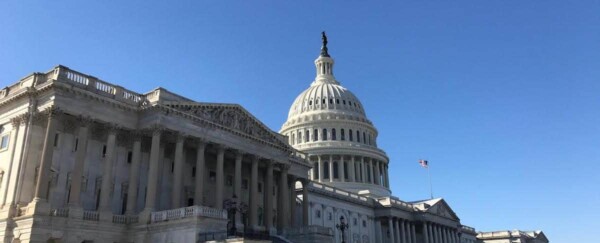The Society of Women Engineers (SWE) recently signed an open letter to the White House, Department of Homeland Security, and Department of State urging that the Administration withdraw their recently issued final rule on student visas that would prohibit non-immigrant students from remaining in the United States if all of their classes are online as a result of COVID-19. The policy would have rescinded previous guidance allowing international students to stay in the US during the pandemic as their colleges and universities work to combine virtual and in-person classes for the fall of 2020, which would immediately affect the roughly 1.6 million international students, and a high percent of graduate STEM-degree seekers.
Fortunately, on Tuesday, July 14, the Trump Administration rescinded its policy that would bar international students who only take online courses from staying in the US.
“SWE is proud to be part of a group of nearly 50 scientific, engineering and education organizations that sent a letter to leaders in Washington opposing the ICE modifications for foreign students participating in online-only learning this fall. The STEM community needs the talent and innovation that these students bring to our US academic institutions. Thanks to our voices and the voices of the country’s most prestigious research universities, the proposed modifications have been rescinded.”
– Karen Horting
The letter, below, was signed by numerous educational and scientific societies, such as the American Geophysical Union, Association for Women in Science, Institute of Food Technologists, oSTEM, SAE International, and many more.
Multi-Society Statement on Prevention of Nonimmigrant Students from Taking Online-Only Coursework
July 8, 2020
The changes announced on July 6, 2020 by the Student and Exchange Visitor Program of U.S. Immigration and Customs Enforcement will have an immeasurable negative impact on many academic institutions and their students, most notable those with significant Science, Technology, Engineering, and Mathematics (STEM) programs.
In the face of the on-going COVID-19 pandemic, colleges and universities across the U.S. are struggling with whether or how to open for classes this fall, with many choosing either blended or fully online offerings. The announced change prohibits those non-immigrants pursuing academic (F-1 visa) and vocational (M-1 visa) coursework from taking a fully online course load and remaining in the U.S. It is also important to note that many STEM students working on graduate degrees have significant responsibilities outside the classroom that reflect research requirements of their programs and cannot be accomplished if the student is not physically present at their institutions. These non-classroom activities represent a critical component of their education and training. Given that a fully online course load may be the only option at many universities, and given the challenges in international travel including visa access, the net effect of this change would appear to be to force large numbers of non-immigrant students to disrupt their studies, leave the U.S., and be unable to return for the foreseeable future.
A substantial proportion of STEM graduate students are foreign born, as are many undergraduates. A talented STEM workforce is needed to tackle the grand challenges of tomorrow. U.S. institutions are greatly enriched by the talent, intelligence, work ethic, and diversity of thought that international faculty and students bring to their campuses. Many of these students stay in the U.S. after graduation and contribute to the economy, sometimes starting tech-based businesses or impacting entire industries. Exclusion of non-immigrant graduate students can be expected to have a significantly negative impact on US academic STEM research. Exclusion of nonimmigrant undergraduate students can be expected to have a significantly negative impact on the global awareness and cultural richness of domestic students seeking to compete in an increasingly integrated global economy. Moreover, this action−added to previous actions taken by the current federal administration−continues the creation of a negative atmosphere that impedes our ability to recruit the best global talent to STEM studies, instruction, research, and practice. In sum, the effect of this this change will be to inflict serious long-term damage to the advancement of science and engineering and the global competitiveness of the U.S. This is not an action we would have expected from a U.S. government, nor is it one that we can support.
While we support efforts to ensure security within our borders, we hope that these efforts will be carried out in such a way as to minimize disruption to those who teach, practice, and study STEM disciplines in the U.S.
Respectfully,
American Society for Engineering Education
ABET
American Anthropological Association
American Association of Physicists in Medicine
American Ceramic Society
American Dairy Science Association
American Geophysical Union
American Institute for Medical and Biological Engineering
American Institute of Biological Sciences
American Society for Biochemistry and Molecular Biology
American Society for Engineering Management
American Society for Investigative Pathology
American Society for Matrix Biology
American Society for Microbiology
American Society for Parenteral and Enteral Nutrition
American Society of Civil Engineers
American Society of Tropical Medicine and Hygiene
Association for Psychological Science
Association for Women in Science
Audio Engineering Society
Biomedical Engineering Society
Biophysical Society Council on Undergraduate Research
Entomological Society of America
The Histochemical Society
The Institute for Operations Research and the Management Sciences
Institute of Food Technologists
Institute of Mathematical Statistics
Institute of Transportation Engineers
International Society for Magnetic Resonance in Medicine
International Society for Stem Cell Research
Linguistic Society of America
Materials Research Society
Mathematical Association of America
The Minerals, Metals & Materials Society
North American Vascular Biology Organization
oSTEM
Research!America
SAE International
Seismological Society of America
Society for Industrial and Applied Mathematics
Society for the Study of Reproduction
Society of Asian Scientists and Engineers
Society of Women Engineers
SPIE, the international society for optics and photonics
Related content:
- SWE’s Next Actions for Intentional Inclusion
- Help SWE Better Serve Women of Color
- SWE Appoints 2 Special Directors for FY21
- Please Join SWE in Welcoming the New HeForSWE Affinity Group!
Author
-

SWE Blog provides up-to-date information and news about the Society and how our members are making a difference every day. You’ll find stories about SWE members, engineering, technology, and other STEM-related topics.






